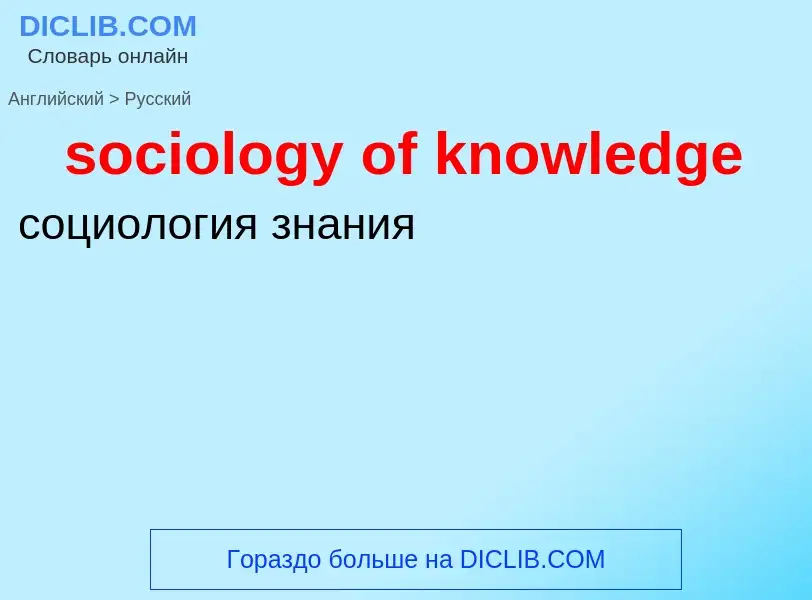Vertaling en analyse van woorden door kunstmatige intelligentie ChatGPT
Op deze pagina kunt u een gedetailleerde analyse krijgen van een woord of zin, geproduceerd met behulp van de beste kunstmatige intelligentietechnologie tot nu toe:
- hoe het woord wordt gebruikt
- gebruiksfrequentie
- het wordt vaker gebruikt in mondelinge of schriftelijke toespraken
- opties voor woordvertaling
- Gebruiksvoorbeelden (meerdere zinnen met vertaling)
- etymologie
sociology of knowledge - vertaling naar russisch
Definitie
.
Wikipedia

The sociology of knowledge is the study of the relationship between human thought and the social context within which it arises and the effects that prevailing ideas have on societies. It is not a specialized area of sociology. Instead, it deals with broad fundamental questions about the extent and limits of social influences on individuals' lives and the social-cultural basis of our knowledge about the world. The sociology of knowledge has a subclass and a compliment. Its subclass is Sociology of scientific knowledge. Its complement is the sociology of ignorance.
The sociology of knowledge was pioneered primarily by the sociologist Émile Durkheim at the beginning of the 20th century. His work deals directly with how conceptual thought, language, and logic can be influenced by the societal milieu in which they arise. The 1903 essay Primitive Classification, by Durkheim and Marcel Mauss, invoked "primitive" group mythology to argue that classification systems are collectively based and that the divisions within these systems derive from social categories. In his 1912, The Elementary Forms of the Religious Life, Durkheim elaborated on his theory of knowledge. In this work, he examined how languages, concepts, and the categories (such as space and time) used in logical thought have a sociological origin. Neither Durkheim nor Mauss specifically coined the term "sociology of knowledge". However, their work was an exceptional contribution to the subject.
The widespread use of the term 'sociology of knowledge' emerged in the 1920s, when several German-speaking sociologists, most notably Max Scheler and Karl Mannheim, wrote extensively on sociological aspects of knowledge. This was followed in 1937 by a much-cited survey of the subject by Robert K. Merton, the American sociologist, 'The sociology of knowledge'. With the dominance of functionalism through the middle years of the 20th century, the sociology of knowledge remained on the periphery of mainstream sociological thought. However, it was reinvented and applied closely to everyday life in the 1960s, particularly by Peter L. Berger and Thomas Luckmann in The Social Construction of Reality (1966). It is still central for methods dealing with a qualitative understanding of human society (compare socially constructed reality). The 'genealogical' and 'archaeological' studies of Michel Foucault are of considerable contemporary influence.



![Mother and children, [[Mahabalipuram]] Mother and children, [[Mahabalipuram]]](https://commons.wikimedia.org/wiki/Special:FilePath/Mother and children. Mahabalipuram.jpg?width=200)

